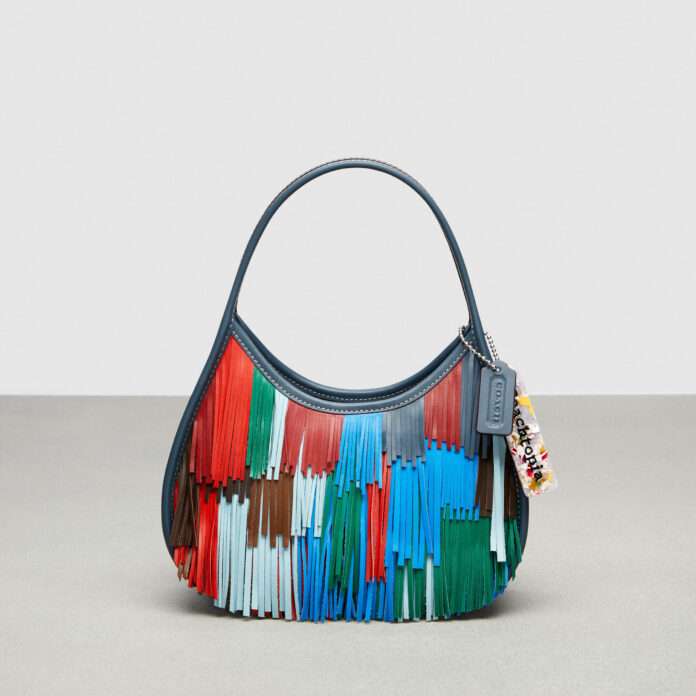Ahead of Earth Day, Coach has launched Coachtopia, a Gen Z-driven brand focused on ‘nothing new’ upcycled and renewable materials.
In April 2021, Coach launched (Re)loved to help give a second life to its products. It has since seen more than 20,000 items recirculated. Now, it’s taking its sustainability commitment to further divert waste with the launch of Coachtopia, a new circular brand offshoot using discarded materials in new products.
“Circularity is about reimagining not just the product lifecycle, but the relationship between brand, planet, and consumer,” Joon Silverstein, SVP, Global Marketing, Creative and Sustainability at Coach and Head of Coachtopia, said in a statement. That’s why we’ve created Coachtopia as both a discovery lab to pioneer circularity in fashion and a collaborative platform for change.”
Silverstein says it’s also inviting a growing community of hundreds of Gen Z individuals to join the Coachtopia Slack channel in order to collaborate on products and take “center stage” in its content and campaigns, “and reimagine our future together.”
The new label is rolling out in the U.S., Canada, and the U.K. initially, with plans to expand to Asia later this year.
‘Design in reverse’
Coachtopia comes from a shared desire to do better for the planet, says Coach Creative Director Stuart Vevers. “It’s a bigger, bolder step forward in realizing our vision for sustainability at Coach, where we prioritize experimenting and learning, and ethical design intentions over cookie-cutter perfection,” he says.
“Coachtopia takes this to a new level by challenging us to ‘design in reverse,’ with the end goal of circularity top of mind, in collaboration with the next generation and their optimistic vision for tomorrow.”
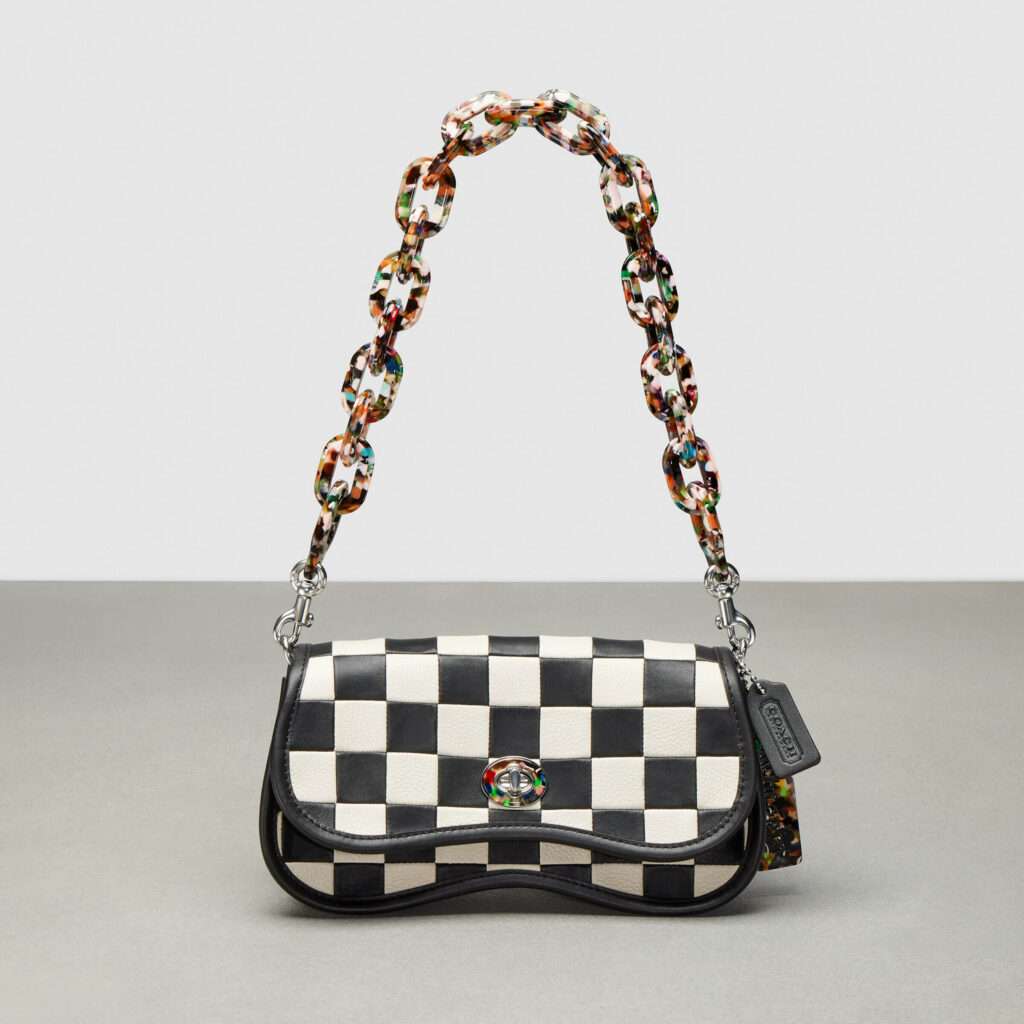
Coach is calling the new label a “world in progress,” that’s advancing iteratively toward a “continually evolving vision of circularity.”
Like its (Re)Loved platform has provided critical insights into the circularity challenges for the luxury craftsmanship sector, Coach anticipates Coachtopia will take up the challenge by innovating through “rapid prototyping” and a continuous feedback loop that it says will drive mutual progress for both brands.
Made Circular
The brand is also embracing an all-gender approach with bags, accessories, ready-to-wear and footwear made with recycled, repurposed, and renewable materials and designed with the Coachtopia Made Circular principles, which include using recycled, repurposed, or renewable materials, designing items to be more easily disassembled for reuse, and creating circular pathways, including a commitment to taking back all Coachtopia products regardless of their age or condition and finding a way to use them. The company says that each Coachtopia product can be traded in at a Coach Retail store in exchange for a credit based on its original value and current condition.
“As Coachtopia grows, it will continue to innovate through limited drops of experimental products that push circular craft ever further — with a commitment to take back every product at end-of-life for reuse, remaking, or recycling,” the company says.

Every Coachtopia bag, wallet, footwear, and ready-to-wear product also comes with a unique digital passport that can be accessed via an embedded NFC chip aimed at giving customers transparency into its materials, design, and impacts. Customers can also use the passport to follow the product’s journey as it is repaired, restored, reused, and reimagined “over multiple lives.”
According to Coachtopia, the current linear fashion system results in 85 percent of materials end up incinerated or as waste in landfill. It says it’s also tackling new materials, which account for nearly 40 percent of the industry’s greenhouse gas emissions.
Specifically, the brand is targeting its use of leather — a co-product of the meat and dairy industries. It says all Coachtopia products will either be upcrafted from Coach production waste or made with at least 50 percent recycled leather scraps from tanneries.
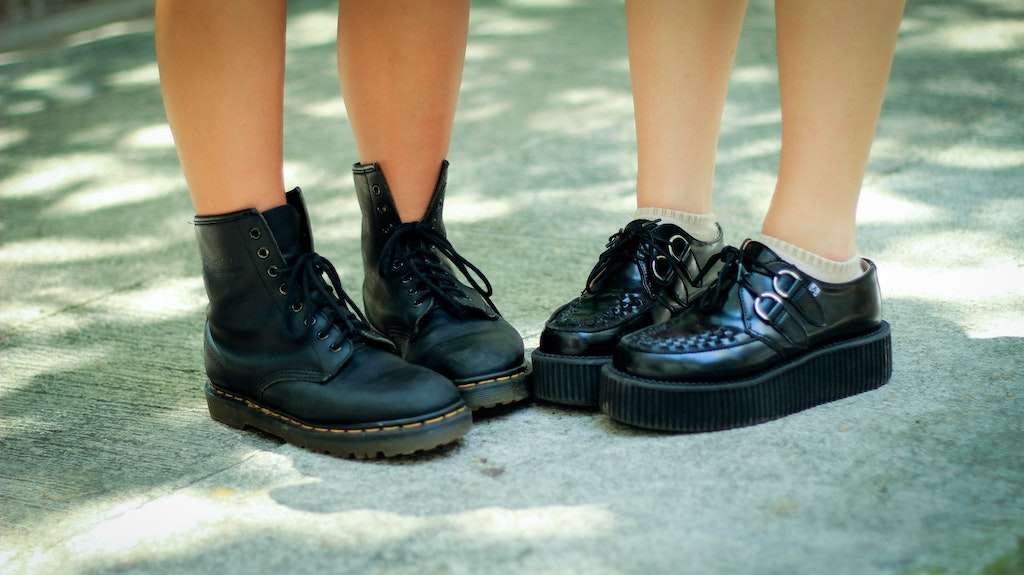
The shift to leather waste has gained traction recently. Last month, materials recycled Gen Phoenix announced $18 million in funding to support its efforts in upcycling leather waste. That funding round saw participation from footwear giant Dr. Martens as well as VC firm Material Impact and InMotion Ventures, the investment arm of Jaguar Land Rover. The company is also working to scale up sustainable plant-based and other leather alternatives. Tapestry, the parent company to Coach, Kate Spade, and Stuart Weitzman, also supported the round. Gen Phoenix will play a key role in supporting Coachtopia with its recycled materials.
Leather production is one of the most polluted categories of the fashion industry. Animal agriculture is a leading producer of planet-warming gasses including methane and carbon dioxide, accounting for nearly 15 percent of total global emissions, according to the United Nations Food and Agriculture Organization.
But leather production goes further into the pollution wormhole with its toxic tanning process that can release a type of chromium that’s a known carcinogen. Leather tanning also produces hazardous wastewater effluent and solid waste and puts leather tannery workers and local communities at risk, according to the U.S. EPA.
The re-use of animal products, including purchasing them secondhand, is a highly debated topic. In 2010, the animal rights group PETA launched an “Understand Secondhand” campaign.
“One person’s tired old trench coat can be another’s fashion statement, which is why it’s no wonder that eco-friendly and budget-conscious shoppers everywhere are turning to thrift stores and vintage shops,” the organization said at the time. It worked with a thrift store to put labels on all secondhand leather, wool, silk, down, exotic skins, and fur items urging consumers to only buy those animal products secondhand. “Most of the millions of cows who are slaughtered for their skin endure castration, branding, tail-docking, and dehorning — all without being given any painkillers,” read the tag.
PETA likens leather to fur without the fuzziness. And even if thrifted, it’s hard to justify wearing fur these days without facing backlash. A growing number of consumers are taking the same approach to leather — a more challenging commitment given the material’s ubiquity. But even leading designers are taking up the anti-leather torch. Stella McCartney has never used it in her designs, and Ganni pledged to phase it out entirely by the end of this year.
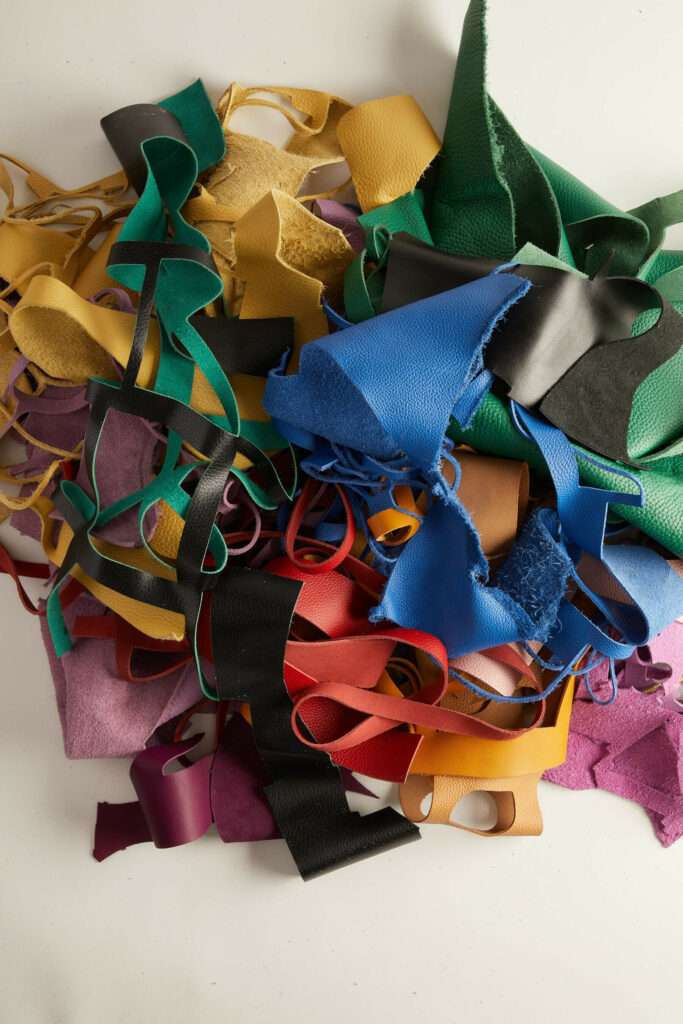
Still, animal leather is popular, leading to vast waste streams, that, if the industry can find a use for, is far better than the alternative — sending those scraps to landfill.
Coachtopia’s “nothing new” approach will take this ethos to new levels, using at least 50 percent recycled leather scraps in its bag lining. It’s also using 100 percent recycled polyester thread, and at least 70 percent recycled resin in its plastic hardware. Ready-to-wear is also getting the circular treatment with 95 percent or more recycled cotton or repurposed deadstock. Labels, too, are made from 100 percent recycled polyester or nylon.
The label has tapped some of the most vocal sustainability influencers for its beta community including Maya Penn, 23, who also sits on the Environmental Media Association’s activist board.
“As a sustainability consultant and designer, I’ve been bringing my voice and expertise to Coachtopia,” Penn said in a statement. “They are collaborating with us, with the next generation of artists, activists, and designers. Coachtopia has created a unique community of like-minded people in the sustainability and fashion spaces.”
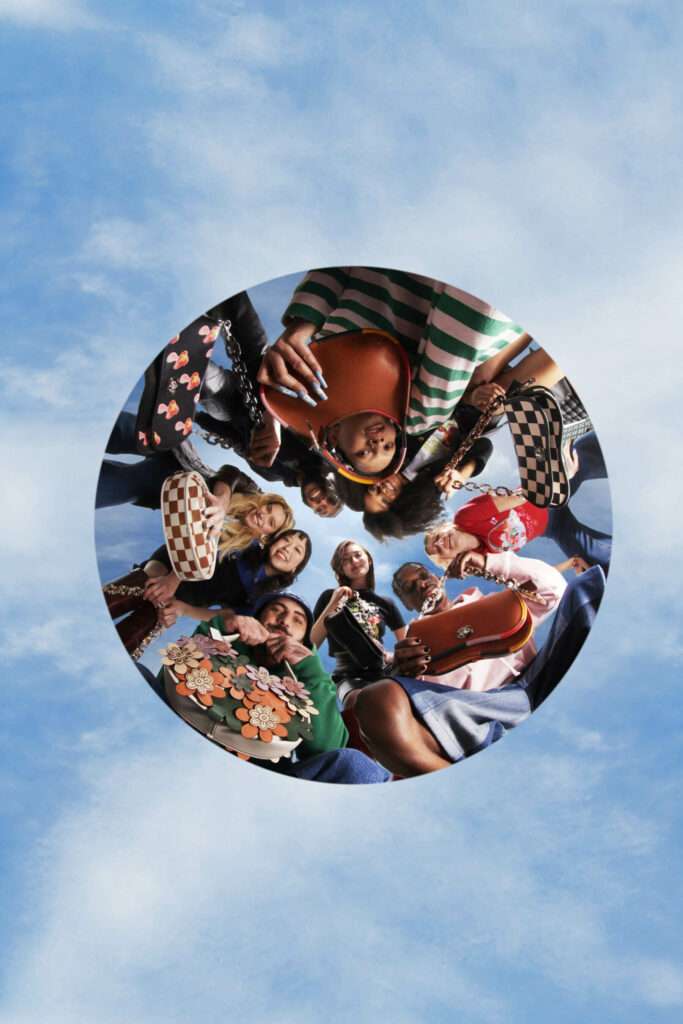
“We want to be part of the conversation because we see what the world will be like if we don’t make change,” says Sophie Lowery, 20, a film student and Coachtopia Beta Community founding member.
The label will also be inviting young talent to participate in its “Coachtopia Waste Contest” where they will work with the Coachtopia team to develop new creative uses for Coach leather scraps.
“We know that to transform our impacts, we need to fundamentally shift mindsets —from seeing opportunity in waste to designing backwards to taking a more open-source approach to creativity,” says Silverstein. “We’ve built Coachtopia as an entirely new world within Coach — an agile start-up with a mission to reimagine the end-to-end system. We’re building it not just for our consumers, but with them.”
Related on Ethos:

